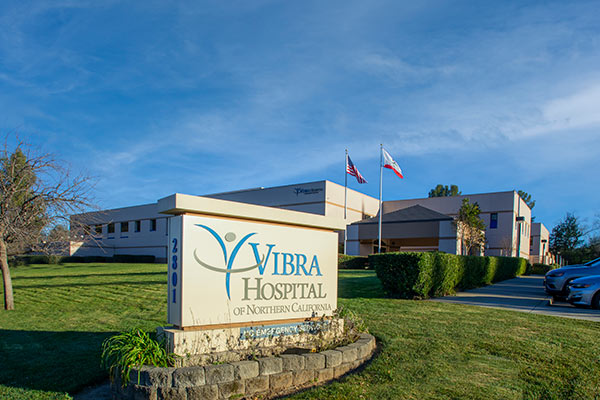John Muir Health is Taking the Mystery Out of Dialysis
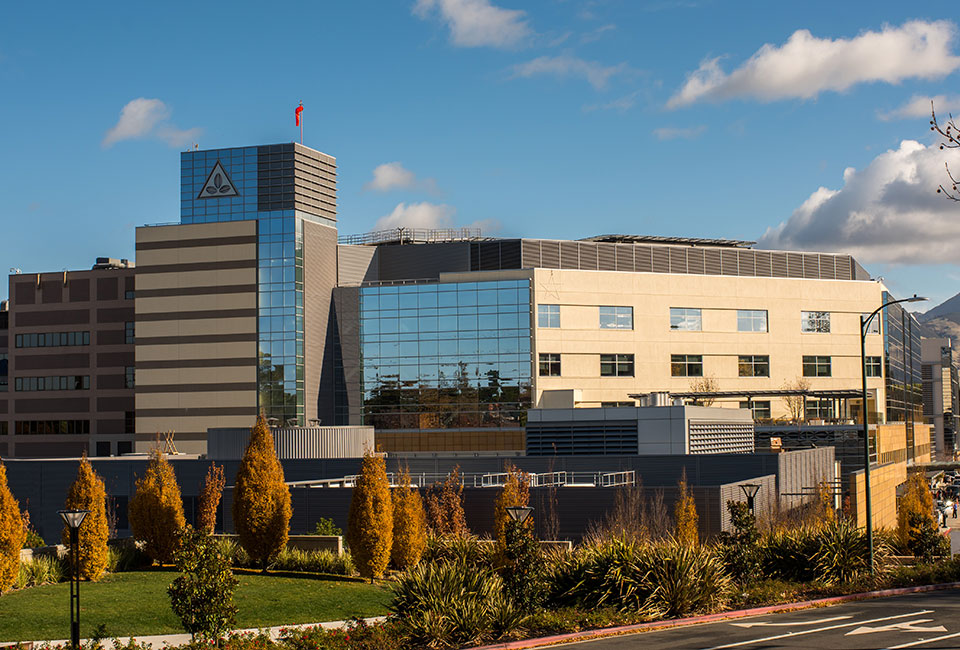
Summary
John Muir Health has converted to an in-house acute dialysis model that offers a step up in technology, simplicity and ease of use—critical for supporting patients and creating efficiencies for providers.
John Muir Health recently made a significant change to its acute dialysis programs to meet the Northern California health system’s growing demand for dialysis services—among the busiest in the state—while ensuring a patient-focused, efficient and high-quality level of care. Elizabeth Wrone, MD, Medical Director and Director of Dialysis for both the 554-bed John Muir Health Walnut Creek Medical Center and nearby 244-bed Concord Medical Center, and her team led the effort to convert their dialysis units from an outsourced provider to an in-house model, all in one day, with a versatile new dialysis machine. Her reasons for doing so center around the patient experience, and the generally negative connotation that this vital treatment has had for decades.
“There really haven’t been any meaningful improvements in dialysis over the years. The Tablo® Hemodialysis System represents an opportunity for people to gather around the traditionally very complex and mysterious dialysis process, and become educated and feel comfortable about it,” says Dr. Wrone, a nephrologist for more than 20 years. “It is a step up in technology and simplicity, that is so important as patients are facing fear and uncertainty when it comes to renal replacement.”
Dr. Wrone notes that patients’ impressions of dialysis begin the moment they set foot in the hospital, and having all staff be familiar, educated and on the same page about dialysis care is very important. “I think Tablo is going to be a big part of bringing all that together. We are excited about the opportunities that Tablo represents for John Muir Health,” she says.
She also notes that the pandemic forced a realization that dialysis has to change. “The COVID-19 crush reinforced the need to be flexible, light on our feet and creative with our dialysis services, as staffing shortages were and are a real concern,” she says. “It showed us that the next pandemic or bad viral season could pressure any hospitals’ ability to take care of critical care patients, ability to staff, and even provide routine services. To efficiently provide dialysis services ourselves instead of using a third-party provider, and being able to educate and support patients with something as easy to use as Tablo, is a big part of why we decided to internalize this service. It came along at just the right time for us.”
Dr. Wrone worked closely with Gwendolyn Sampson Brown, RN, CNN, PMH-BC, BSBA, MSN, the dialysis manager who led the Tablo implementation effort at both campuses. Sampson Brown has a 33-year background in dialysis, and a personal perspective on kidney disease as her father had spent years on the treatment.
“Dialysis has always involved complicated machines that were a mystery to most people,” says Sampson Brown. “From the patient perspective, they’re hooked up to this big machine and have no clue what’s happening to them. With Tablo, dialysis is no longer a mystery. Nurses and patients have more insight.”
“With Tablo, dialysis is no longer a mystery. Nurses and patients have more insight.” – Gwendolyn Sampson Brown, RN, CNN, PMH-BC, BSBA, MSN
When the two leaders first learned about Tablo and participated in a demonstration of the system at John Muir Health, they were impressed but also skeptical. “I said at the time, this is too good to be true,” says Dr. Wrone. “But then the Outset team showed us the data and connected us with some of the MDs that have done clinical work on it, and I thought, this is worth exploring.”
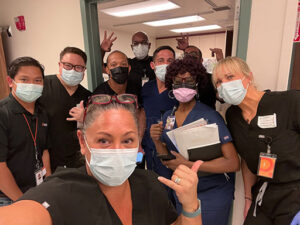
Sampson Brown says it’s all about the patient point of view. “Tablo has been a long time coming,” she says. “For the first time, we have a piece of equipment that is patient centered. What I appreciate most about it is the feedback that I get from patients, and what they tell me is that it doesn’t feel cumbersome. There’s a different feel to Tablo because it has a smaller footprint. They feel that they know what’s going on with the machine. It’s speaking the patient’s language, and they can read along on the touchscreen as their treatment is set up.”
“The features on this machine have been really well thought out,” she continues. “The special touches are ingenious: the music, the visuals.”
Train and Treat: Transition Day at Walnut Creek and Concord
The switch to an all-Tablo in-house model for intermittent dialysis (IHD) at both John Muir Health campuses took place all on one day—June 20, 2022, to help ensure care continuity after the previous outsourced provider was no longer able to provide patient treatments. Both dialysis teams, most of them seasoned dialysis nurses, were prepared to address the urgent situation, first and foremost for the 15 patients requiring treatment that day at both facilities.
Tablo training for the dialysis nursing staff was completed in less than three hours, followed immediately by patient treatments on the fleet of new consoles the same day at both Walnut Creek and Concord.
“With the Outset Medical team here with us, we jumped in and took on patient treatments with Tablo,” adds Allan Pusag, RN, charge nurse at John Muir Health Concord Medical Center. “It was a very busy day, and a hectic past few months, but so far so good with our team handling our patient census. We are one of the highest-volume hospitals in the area for dialysis, running 15 to 20 patient treatments a day, about 100 a week, and we’re getting busier all the time.”
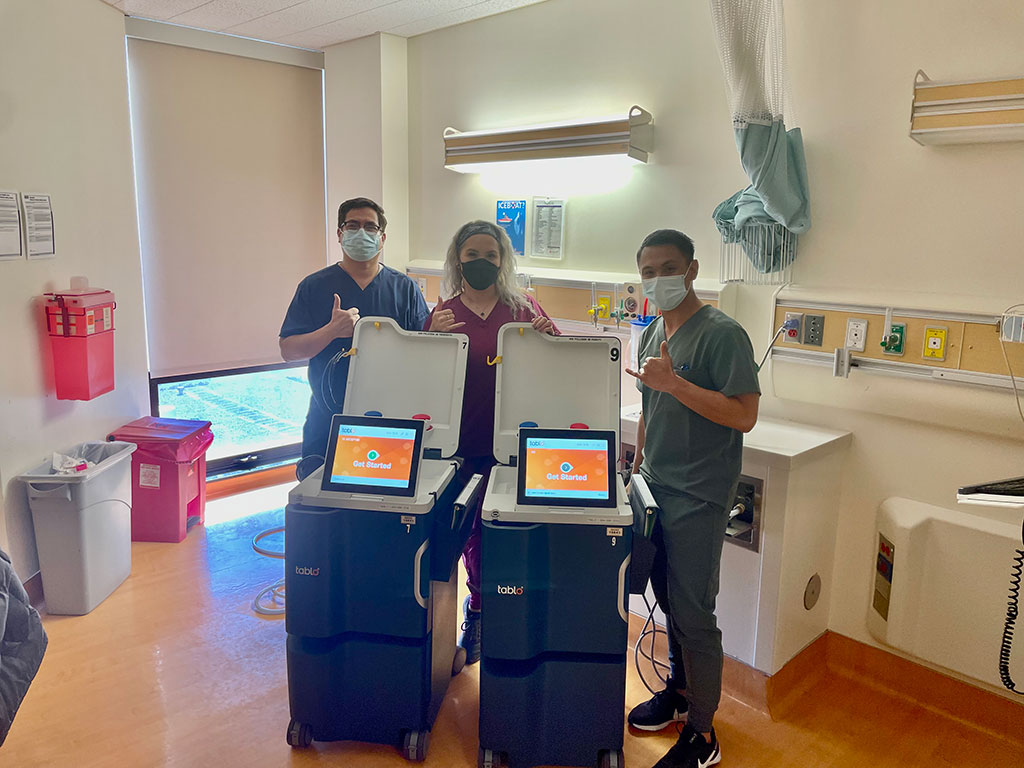
“We move the machines to any floor where they are needed bedside,” Pusag continues. “It helps that Tablo is easier to set up than our previous machines.”
“The Outset team worked alongside our staff to ensure they felt confident with the new machines,” says Lawrence Padilla, RN, charge nurse at John Muir Health Walnut Creek Medical Center. “Looking back at my 23 years in dialysis, I prefer Tablo over other machines that I’ve used. Many of our nurses also say that they prefer it over the old bulky machines.”
“It’s important that the nurses feel comfortable and confident,” adds Dr. Wrone. “At first, they were hesitant and said ‘the 300 mL/min dialysate flow rate is so low, how can you possibly clear anything?’. We have no regrets at bringing that flow rate down.”
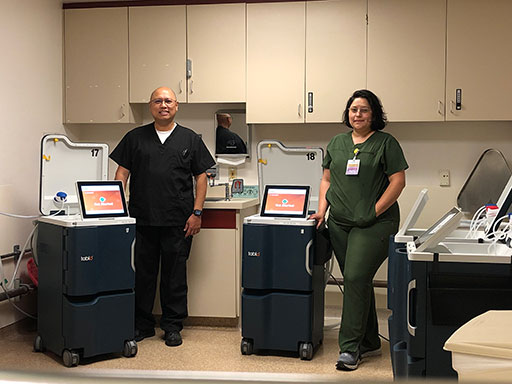
“The nursing staff did have a learning curve with Tablo, as they had to unlearn all the complexities that they were used to with previous machines,” adds Sampson Brown. “You go from something very complex to something simple, and you feel like you’re forgetting something in the set up. They initially thought, ‘there’s absolutely no way this machine can be as effective.’ Now they can see that technology has gotten better for us. We can look at the treatment data on TabloHub and see the efficiencies that we have, and make informed decisions about patient care.”
“The nursing staff did have a learning curve with Tablo, as they had to unlearn all the complexities that they were used to with previous machines.” – Gwendolyn Sampson Brown, RN, CNN, PMH-BC, BSBA, MSN
Dr. Wrone emphasizes that having dialysis nursing leadership in place, and support from the top, was key in making their rapid conversion to an in-house program a success. “Having someone who knows the ins and outs of dialysis and managing staff really made the difference for us, especially at the beginning. I give Gwen [Gwendolyn Sampson Brown] a lot of credit for that success. We are also fortunate in having a supportive and insightful administration at John Muir Health.”
“For the first time, insourcing has given us complete control over the quality of patient care, which is important to John Muir Health, and I think would be important to any health system,” says Sampson Brown.
“Any hospital that is considering starting an in-house service line with Tablo, they should have no hesitation because Outset’s support is phenomenal,” she adds. “It goes beyond what you would expect from customer service. We never felt alone. That is absolutely key when you’re insourcing a program like this. Having that partnership was golden.”
ABOUT JOHN MUIR HEALTH
John Muir Health is a nationally recognized, not-for-profit health care organization in the San Francisco Bay Area. It includes a network of more than 1,000 primary care and specialty physicians, 6,000 employees, medical centers in Concord and Walnut Creek, including Contra Costa County’s only trauma center, and a Behavioral Health Center. The health system offers a full-range of medical services, including primary care, outpatient and imaging services, and is widely recognized as a leader in many specialties – neurosciences, orthopedic, cancer, cardiovascular, trauma, emergency, pediatrics and high-risk obstetrics care.
(Image at the top of this page: John Muir Health Walnut Creek Medical Center, Walnut Creek, CA. All images on this page used with permission.)
The views and opinions expressed herein represent the personal opinions of the facility staff, and do not represent the views or opinions of other persons, institutions or organization.

